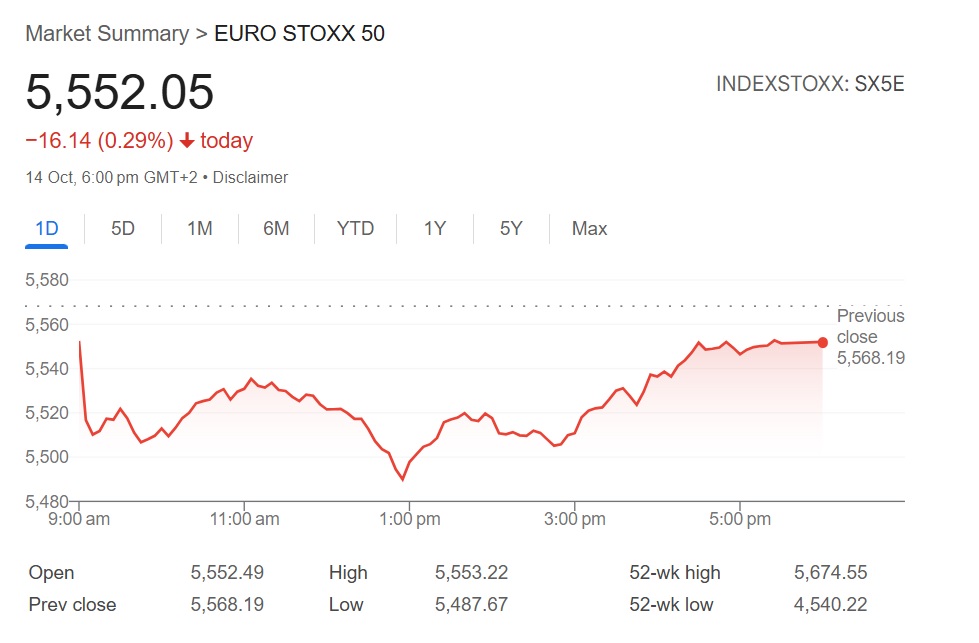
LONDON European stocks closed at a two-week low on Tuesday, reversing early-week gains as the threat of a new U.S.-China trade dispute and a profit warning from tyre maker Michelin rattled investor sentiment.
The pan-European STOXX 600 index .STOXX ended the session down 0.4%, paring steeper losses from earlier in the day. Germany’s trade-sensitive DAX .GDAXI fell 0.6%, also notching a fresh two-week low.
Markets have been on edge since former U.S. President Donald Trump threatened China with a new wave of tariffs to counter Chinese export controls on rare earth minerals, which are critical for high-tech industries like defence, automobiles and semiconductors. China controls roughly 70% of the global supply.
Trump later appeared to suggest on social media he might not follow through, but the initial threat was enough to sour the mood.
Auto stocks .SXAP were among the biggest fallers, dropping 2.4% after Michelin MICP.PA slashed its full-year guidance, citing a “further deterioration of the business environment.” Its shares plummeted nearly 9%.
The French tyre maker said its North American business was a particular drag, with sales falling close to 10% as “competitiveness … was impacted by tariffs.” Deutsche Bank subsequently cut its price target on Michelin stock by 16.2%.
Mining stocks .SXPP, sensitive to global trade flows, also fell, shedding 1.7%.
In contrast, Sweden’s Ericsson ERICb.ST led the gainers, surging 18% after its third-quarter earnings smashed estimates, with net income jumping 191% year-on-year.
“We established margins at a new long-term level following strong operational execution over the past few years,” CEO Börje Ekholm said.
Defence stocks sold off as investors assessed the potential impact of a rare earths supply bottleneck, crucial for producing fighter jets and missiles. Germany’s Rheinmetall RHMG.DE fell 2.2% and Renk RENK.DE dropped almost 4%.
In currencies, the British pound GBP=D3 fell 0.4% against the U.S. dollar to its lowest since early August after data showed the UK unemployment rate rose more than expected.
Investors are now looking to the IMF and World Bank annual meetings in Washington, with the International Monetary Fund set to release its latest World Economic Outlook report later on Tuesday.